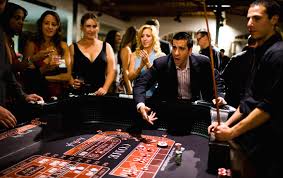With their outstanding environmentally friendly party rentals check this, Party Rentals Los Angeles is spearheading the movement in the Party Rentals LA sector toward more sustainable events. Understanding how critical it is to reduce environmental effect without sacrificing elegance or quality, LA specializes in planning events that incorporate the “green touch,” where each piece—from furniture to decor—reflects a dedication to sustainability.
LA Event Rentals is leading the way in providing event solutions that are in line with the global trend toward greener choices. Their environmentally friendly party rentals accommodate a variety of event kinds and themes, giving hosts the chance to throw spectacular parties while still doing good for the earth. Offerings from LA include furniture made from recycled materials, eco-friendly décor, and biodegradable tableware. The goal is to create events that are both aesthetically pleasing and ecologically conscious.
LA’s green party rentals are unique because they prioritize sustainability and style. The collection offers a wide variety of options so that hosts can select pieces that complement the style and topic of their event. LA’s dedication to excellence is shown in its environmentally friendly products, which guarantee that sustainable options don’t sacrifice style.
Beyond merely offering ecologically responsible rentals, LA’s eco-friendly strategy aims to create a holistic experience that appeals to both hosts and guests. Their staff works directly with hosts to comprehend the goals of their event and helps them choose eco-friendly components that complement their style. This customized approach guarantees that the environmentally friendly decisions are well integrated into the event’s overall design.
Furthermore, LA Event Rentals’ focus to sustainability is evidence of their commitment to making a beneficial environmental impact. By providing environmentally friendly options that encourage hosts to make thoughtful decisions, LA is actively advancing the trend toward more environmentally responsible events.
LA Event Rentals is a reliable resource for anyone looking to throw elegant but environmentally conscious events. With their selection of environmentally friendly party rentals, customized service, and dedication to planning parties that are stylish and responsible, LA makes sure that hosts can have a good time without harming the earth. Party Rentals LA considers itself to be a leader in environmentally friendly and sustainable innovation, transforming events into stunning festivities.













